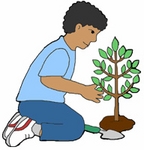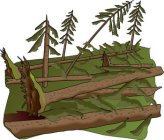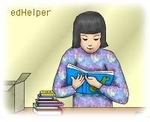
Worksheets and No Prep Teaching Resources
Reading Comprehension Worksheets
Caring for Earth

Caring for Earth
 Worksheets and No Prep Teaching Resources Reading Comprehension Worksheets Caring for Earth |
 Caring for Earth |
| edHelper's suggested reading level: | grades 8 to 10 | |
| Flesch-Kincaid grade level: | 9.88 |
| Print The Gas Effect, Part 2 (font options, pick words for additional puzzles, and more) |
| Quickly print reading comprehension |
| Print a proofreading activity |
|
The Gas Effect, Part 2
By Trista L. Pollard |

|
 1 Scientists and environmentalists may agree that the Earth's temperature has increased during the last century. However, scientists are not sure if the increase in temperature is from the activities of humans or if it is part of the Earth's natural climate cycle. In The Gas Effect, Part 1, you read about greenhouse gases and their relation to global warming. Let us look at the human activity that may contribute to global warming.
1 Scientists and environmentalists may agree that the Earth's temperature has increased during the last century. However, scientists are not sure if the increase in temperature is from the activities of humans or if it is part of the Earth's natural climate cycle. In The Gas Effect, Part 1, you read about greenhouse gases and their relation to global warming. Let us look at the human activity that may contribute to global warming. |
Create Weekly Reading Books
Prepare for an entire week at once! |
| Leave your feedback on The Gas Effect, Part 2 (use this link if you found an error in the story) |
 |
Caring for Earth
|
 |
High School Reading Comprehensions and High School Reading Lessons
|
 |
Earth Day Activities, Printables, Worksheets, and Lesson Plans for Kids
|
 |
Science
|